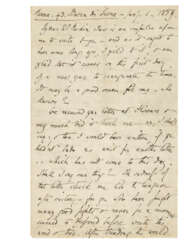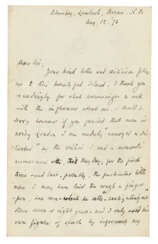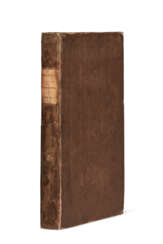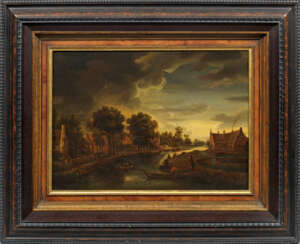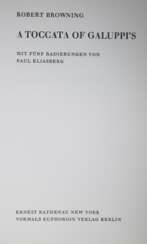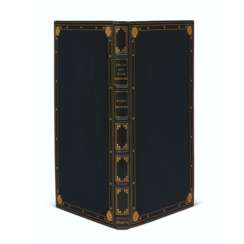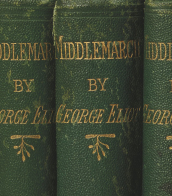robert browning (1812 - 1889)
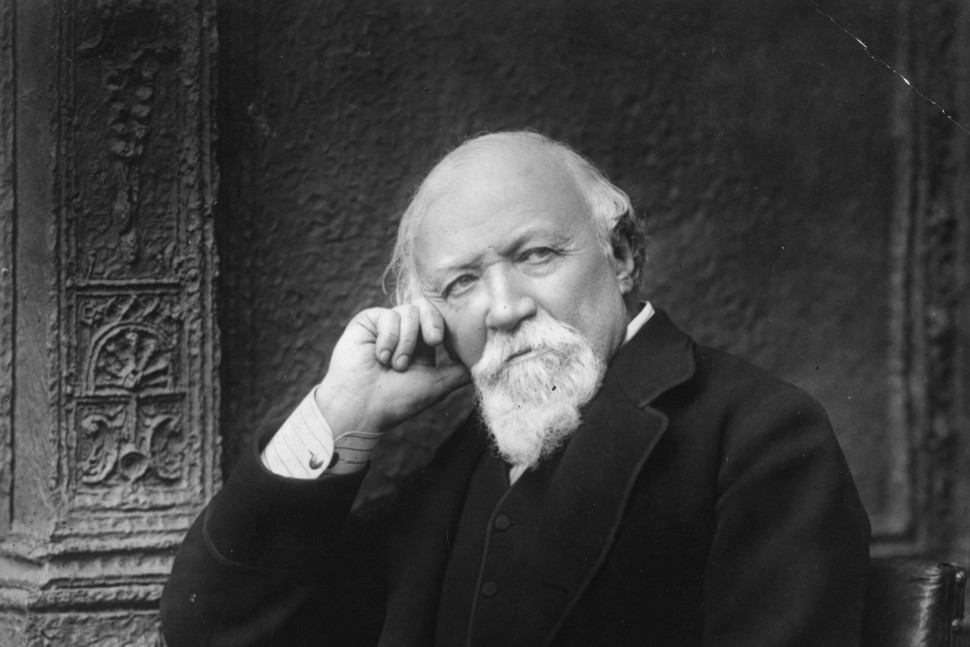
Robert Browning was an English poet and playwright of the Victorian era.
Browning's father, a bank clerk in London, was a very accomplished man, a collector of books and paintings, an artist and a scholar. He gave his son the basics of Greek and Latin, as well as classical literature. Browning re-read many books from his father's extensive library and also attended classes at the University of London. In 1834 Robert Browning traveled to St. Petersburg and later visited Italy. Between
1832-46 he wrote his early long poems and most of his plays. Browning's first published work was "Pauline" (1833); this dramatic monologue was highly emotional. In 1835 he published the poems "Paracelsus" and in 1840 "Sordello," which are about men of great talent trying to come to terms with the demands of the world.
In 1868-69. Browning published his major work, a novel in verse, The Ring and the Book, based on the trial of a murder case in Rome in 1698. Grand in conception and execution, it was immediately well received by the public, and Browning became a major figure in the history of English poetry.
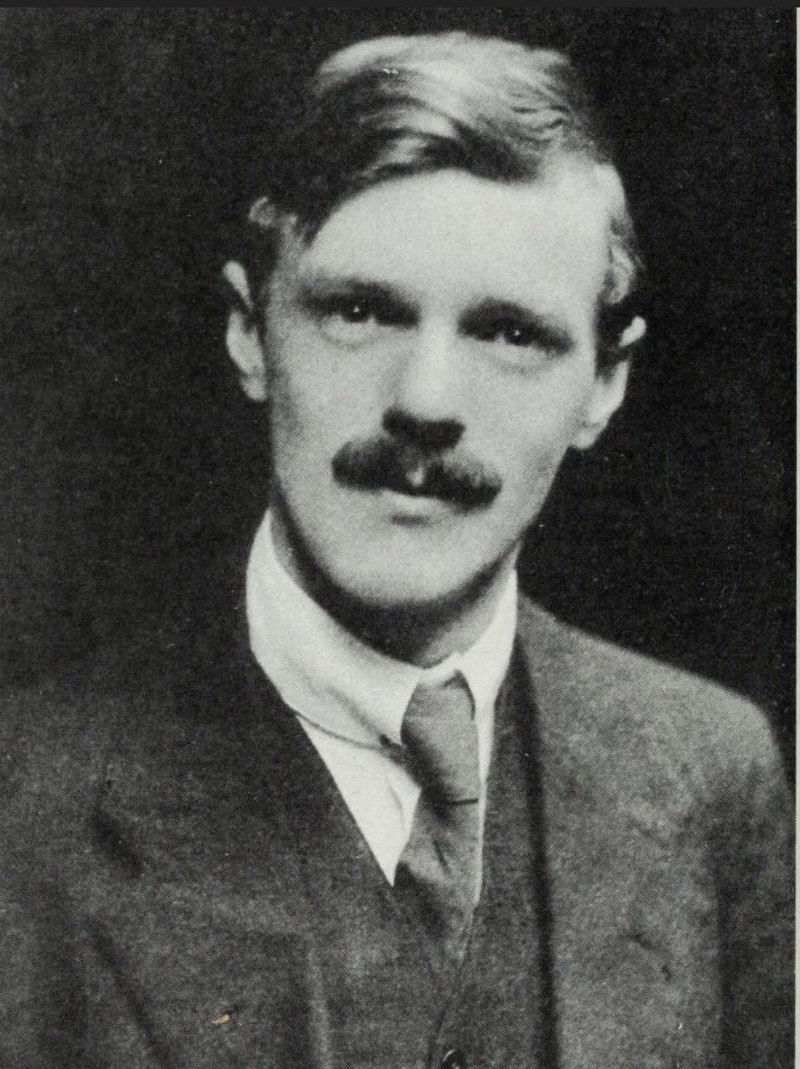

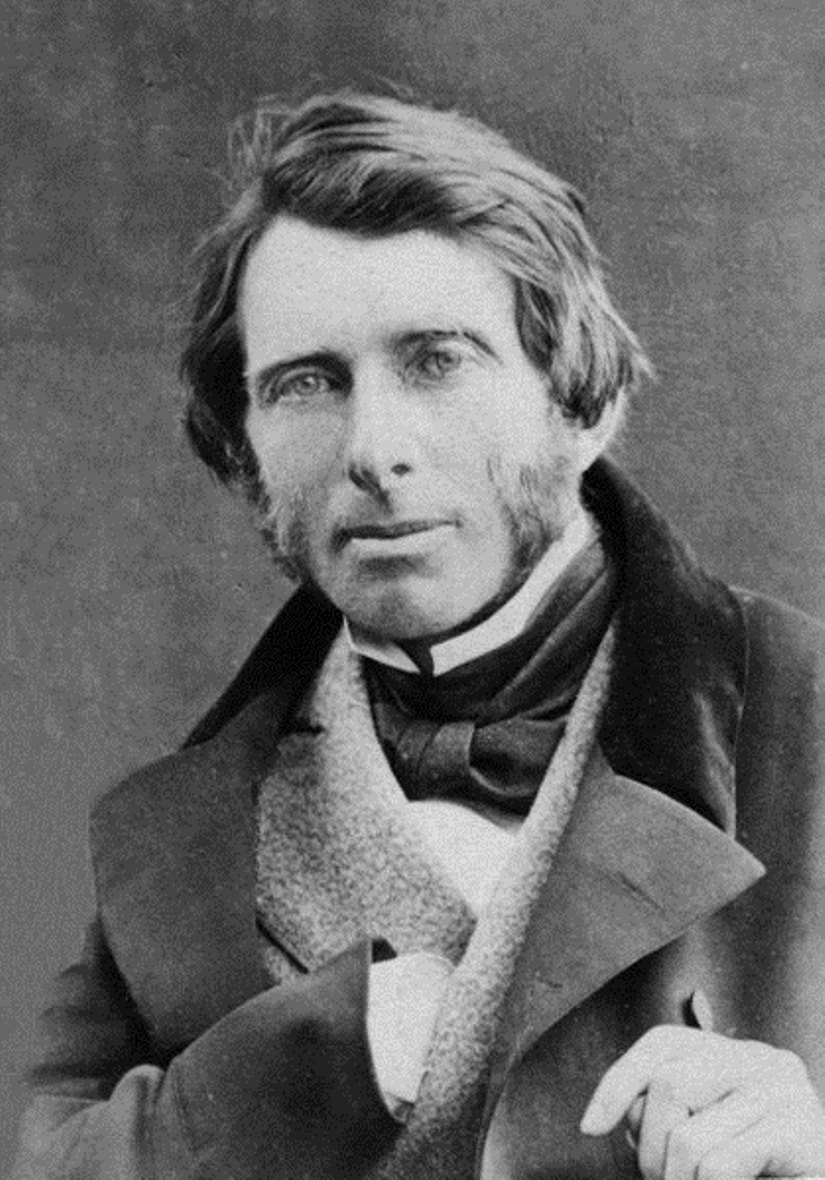
John Ruskin was an English philosopher, art historian, and polymath of the Victorian era, celebrated for his profound influence on art, architecture, and society. With a diverse array of interests ranging from geology to literature, John Ruskin's contributions to the cultural and intellectual fabric of the 19th century were unparalleled. His notable works include "Modern Painters," "The Seven Lamps of Architecture," and "The Stones of Venice," where he explored the deep connections between nature, art, and society. Ruskin's advocacy for the Pre-Raphaelites and his critical stance against industrialization's impact on art and architecture marked him as a pivotal figure in the Arts and Crafts Movement. His teachings inspired generations, including William Morris, to value craftsmanship over mass production, anticipating modern concerns with environmentalism and sustainability.
John Ruskin's early life, shaped by his parents' influence and his exposure to the art and religious fervor of his time, laid the foundation for his later views that championed a return to nature and the importance of truth in art. His critical writings, not just limited to art but extending to social criticism, embodied a vision for societal reform that emphasized ethics, aesthetics, and the human connection to the natural world. John Ruskin's legacy is reflected in his ability to inspire both contemporaries and future movements, highlighting his role as a visionary thinker whose ideas transcended the boundaries of his time.
For collectors and experts in art and antiques, John Ruskin's life and work offer a rich tapestry of insights into the Victorian era's cultural and aesthetic debates. His profound impact on art criticism, architectural theory, and social philosophy makes him a figure of enduring significance in the history of art and culture.
To stay informed about new product sales and auction events related to John Ruskin, sign up for updates. This subscription is a gateway to exploring the legacy and continued relevance of one of the most influential figures in the world of art and culture.


Robert Browning was an English poet and playwright of the Victorian era.
Browning's father, a bank clerk in London, was a very accomplished man, a collector of books and paintings, an artist and a scholar. He gave his son the basics of Greek and Latin, as well as classical literature. Browning re-read many books from his father's extensive library and also attended classes at the University of London. In 1834 Robert Browning traveled to St. Petersburg and later visited Italy. Between
1832-46 he wrote his early long poems and most of his plays. Browning's first published work was "Pauline" (1833); this dramatic monologue was highly emotional. In 1835 he published the poems "Paracelsus" and in 1840 "Sordello," which are about men of great talent trying to come to terms with the demands of the world.
In 1868-69. Browning published his major work, a novel in verse, The Ring and the Book, based on the trial of a murder case in Rome in 1698. Grand in conception and execution, it was immediately well received by the public, and Browning became a major figure in the history of English poetry.


Robert Browning was an English poet and playwright of the Victorian era.
Browning's father, a bank clerk in London, was a very accomplished man, a collector of books and paintings, an artist and a scholar. He gave his son the basics of Greek and Latin, as well as classical literature. Browning re-read many books from his father's extensive library and also attended classes at the University of London. In 1834 Robert Browning traveled to St. Petersburg and later visited Italy. Between
1832-46 he wrote his early long poems and most of his plays. Browning's first published work was "Pauline" (1833); this dramatic monologue was highly emotional. In 1835 he published the poems "Paracelsus" and in 1840 "Sordello," which are about men of great talent trying to come to terms with the demands of the world.
In 1868-69. Browning published his major work, a novel in verse, The Ring and the Book, based on the trial of a murder case in Rome in 1698. Grand in conception and execution, it was immediately well received by the public, and Browning became a major figure in the history of English poetry.


Robert Browning was an English poet and playwright of the Victorian era.
Browning's father, a bank clerk in London, was a very accomplished man, a collector of books and paintings, an artist and a scholar. He gave his son the basics of Greek and Latin, as well as classical literature. Browning re-read many books from his father's extensive library and also attended classes at the University of London. In 1834 Robert Browning traveled to St. Petersburg and later visited Italy. Between
1832-46 he wrote his early long poems and most of his plays. Browning's first published work was "Pauline" (1833); this dramatic monologue was highly emotional. In 1835 he published the poems "Paracelsus" and in 1840 "Sordello," which are about men of great talent trying to come to terms with the demands of the world.
In 1868-69. Browning published his major work, a novel in verse, The Ring and the Book, based on the trial of a murder case in Rome in 1698. Grand in conception and execution, it was immediately well received by the public, and Browning became a major figure in the history of English poetry.
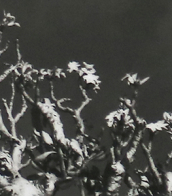
![[D.H. Lawrence (1885-1930)] – Robert Browning (1812-1889)](/assets/image/picture_3643917/78168/nsx1mcglqntcbud3m0hynfmrqoipi7iioqejtkyukv8sx8jslibvanbgvmfygqze1701505298jpg__fix_374_244.jpeg)
![[D.H. Lawrence (1885-1930)] – Robert Browning (1812-1889)](https://veryimportantlot.com/assets/image/picture_3643917/78168/nsx1mcglqntcbud3m0hynfmrqoipi7iioqejtkyukv8sx8jslibvanbgvmfygqze1701505298jpg__fix_374_244.jpeg)
